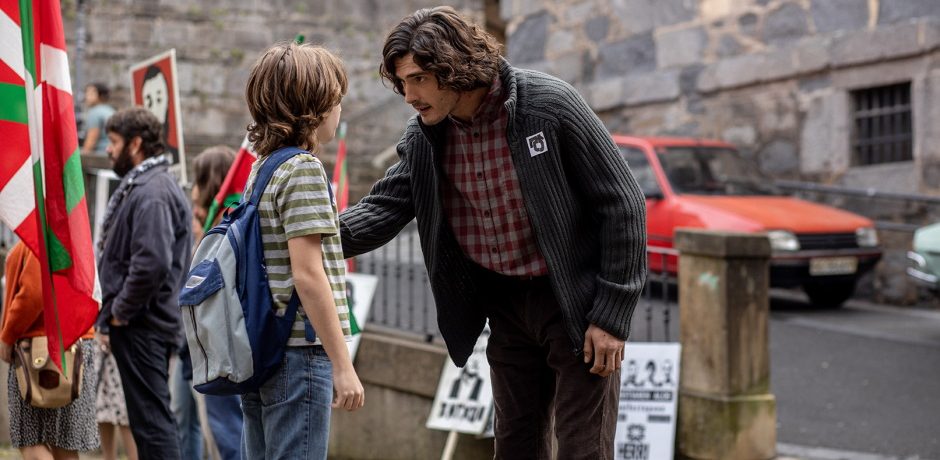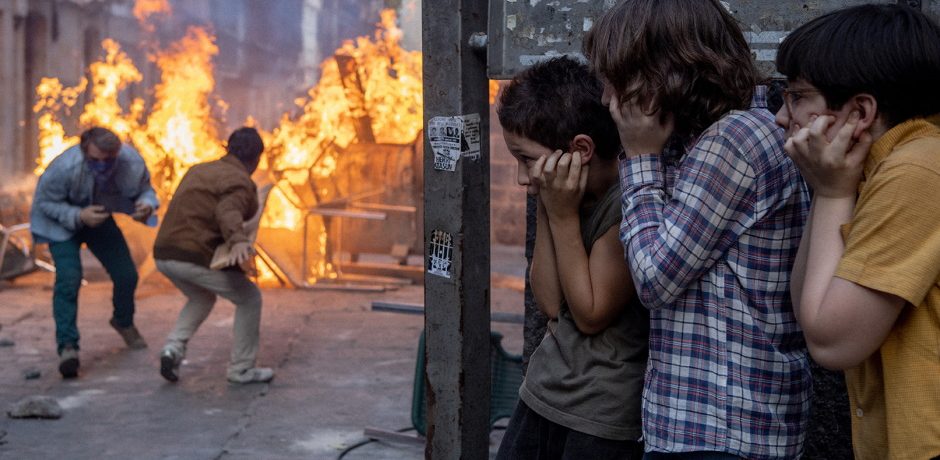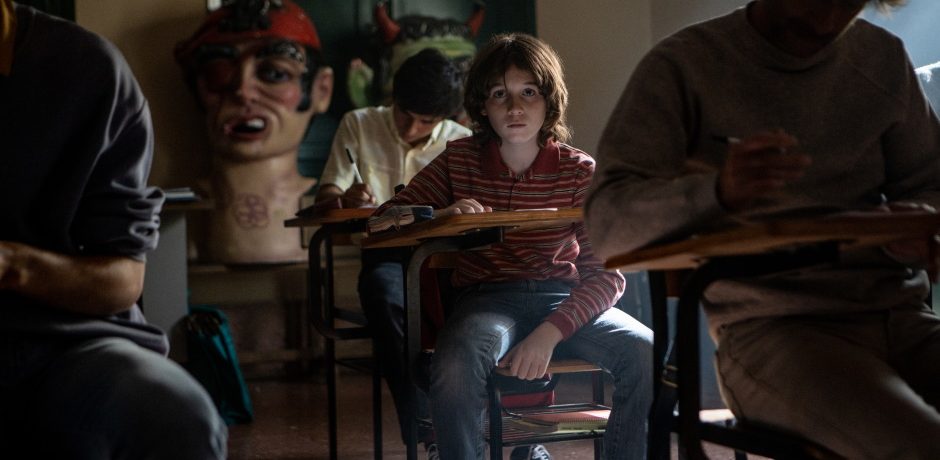In Érase una vez en Euskadi the director Manu Gómez, takes the viewer on a trip down memory lane, back to his childhood in the socially and politically troubled Basque Country of the 80’s.
The plot revolves around Marcos, Jóse Antonio, Paquito and Tony, a group of 12-year-old kids and their eagerly awaited summer holiday of 1985, with all their hopes, dreams and faith in the future. They all come from a working-class background; the majority are immigrants from southern regions of Spain who were looking for better working conditions that only factories in the North provided at the time.
Whilst their families struggle to get by and their personal relationships slowly deteriorate, nothing seems to trouble the kids’ adventures and their burning desire for freedom. They are simply too busy roaming the streets of the little town; playing football, bantering with each other, and discovering feelings and sexuality, to be bothered by the social unrest, heroin addiction and AIDS outbreak that are shaping the Basque society..
While initially troubles only appear to lay in the background, eventually the hardship of the adult world will break the illusion of their innocent lives, forcing them to face loss and pain to such an extent that no child should ever experience. Each one with his own story that will surely resonate differently with the audience according to their own experiences, the four kids will learn that the most meaningful relationship that they have built is the one between them all. In the two hours of the movie we follow the main characters in an emotional crescendo that will have many heartbreaking twists, although there will also be room for hope and new beginnings.
The movie acts a delicate portrayal of adolescence and friendship more than a political statement, and it beautifully depicts the adversities of the time through the children’s eyes and their little ways to cope with them, like the pursuit for a new videotape for Paquito would keep his mind off his parents’ failing marriage, or Marcos self-sabotaging his competitive cycling career to escape his father’s expectations.
Although it’s a film imbued with nostalgia, the director doesn’t idolise the past as the hard reality is never sugar-coated to the audience.The violence of ETA, the disruptive power of heroin and the AIDS crisis are shown in all their devastating effects.
Nevertheless, Gómez is definitely more interested in writing a personal love letter to his childhood and the freedom of those days by focusing on the little heroic acts of the working class.
Perhaps the main strength of his first effort lies here in maintaining a perfect balance between the gravity of the painful events and the lightheartedness of the kids, in a mix of comedy, drama and the coming of age genres.In particular the contrast between the grey sky and the factories with the warm and colourful enthusiasm of the kids is a simple but powerful tool to depict the movie’s main message.
The soundtrack and the photography would be familiar to an audience of any latitude as the cultural references are evident and follow a framework that has been successfully used many times in the last few years, since the Stranger Things boom. The work of the ensemble cast deserves a lot of credit, but the child actors are undoubtedly the ones that carry the movie to the next level with an incredible group performance, contradicting once again, the famous old saying attributed to W.C Fields that in show business one should never work with children.
The movie is a fantastic debut and Manu Gómez successfully establishes himself as a promising new director and definitely one to watch. We are all waiting for more stories about wonderful humans and their struggle in a complicated yet beautiful world.
By Michele Pezzuto, Customer Service Assistant


